Remember: Real Bankers are Fiduciaries
The Interim Report on our banking system by Sir John Vickers was released on Monday. There is no mention in all of the report that a banker is a fiduciary to his client first and foremost. Call me old fashioned, but the casino banking of “lets place our bets” (of course with other people’s money) is now the vogue. I submit that on the strong foundations of the fiduciary relationship sits a solid and sound banking system. Until we understand this, we are just tinkering around the edges. Professors Kevin Dowd and his co-author Martin Hutchinson remind us of the partnership roots of banking and how this kept bankers from being too risky, and focused them on the long term needs of their clients, to whom they had open ended liability. Fiduciary or not, this forced honesty in the system. A fiduciary duty is a legal relationship between one party, the principal, who is dependent on the better knowledge and judgement of the person he trusts, the fiduciary. This relationship exists between the doctor and the patient, the teacher and the student, the lawyer and his client, the accountant and his client and yes, the banker and the client. A fiduciary duty is the highest form of duty for you to dispense advice, offer services and do business. Your clients’ interests are above your own. You must avoid conflicts of interest, and you must only profit from your transactions so long as your client is aware of this. This is contrasted with the ordinary tort duty of care required when individual parties act only to avoid harm to others. When you deposit your life savings with another party such as a bank, you are not requiring just reasonable tort standards of care, but absolute standards of car, i.e. fiduciary standards. Nothing can replace lost savings set aside for retirement. The banker has an enduring obligation of fiduciary care. Now, in a modern bank from the very outset we have confusion. Its raison d’être, after providing safety for your money, is to offer to intermediate deposits to pass them through to where they are demanded, to willing borrowers of the bank. We are told by the majority of our bankers that the money in those deposits is ours. In reality, as recognised by law, a deposit is a debt from the bank to the depositor. This comes as a surprise to most, as evidenced by our Cobden Centre survey on banking. Some would say that this is fraud. I would say this is negligent misrepresentation. The latter requires only a false statement of fact being made to induce a party into a contract, which I submit is what actually happens when you go to open a bank account. Most offers of opening a bank account make no reference to the fact that you are becoming an unsecured creditor to the bank. This is a critical point, as most people are very shocked at this revelation. I am amazed that even after the total collapse of the banking system, the majority of people still think that their money is in their bank (and safe!). We have discussed on this web site before how there never is any mention of what you are actually legally getting involved with when you enter into an act of depositing or savings with a bank. A group of us have tried to make matters very simple and clear up this confusion by supporting this Bill in Parliament. By requiring a distinction between deposits for safe custody and deposits for lending, we have cleared up some confusion in the banking system and laid the foundations for a solid system to grow and flourish. The banker as fiduciary can then act in your best interest with your money kept aside for safe keeping and instant access, and investing the money you have allocated for lending, thus earning you interest. An honest fiduciary would then advise you according to the time-frame you choose for the investment, and your appetite for risk. You could invest in different parts of the bank to reflect this time and risk profile. At all points in time the bank could pay its safe-keeping deposits out, as they sit in the vaults as cash. Should some of the assets of the banks (the loans) turn bad, it is the liability of the partners, not the current account depositors, still less the taxpayers. A fractional reserve bank, be it state-supported as they are today, or even a free one as some readers of this site advocate, could never guarantee this all the time. Thus they are immoral and thoroughly dishonest if tested under the fiduciary standard. A fractional reserve free bank could well exist with full disclosure as to the nature of the arrangement, but I would suggest this is not a fiduciary relationship. It implies reasonable standards of care, not absolute standards. This must be the case as the fractional reserve free banker can never say to you with certainty, “you can have all your money back when you demand it”. Only the fiduciary 100% reserve banker can. A fractional reserve free banker can say “with the law of large numbers, I am pretty sure I can guarantee you your money back, but never all of my deposits at the same time”. That may well be fine for large numbers of people. Not for me. A humorous look at the mislabelled “Fidelity Fiduciary Bank” in Mary Poppins reveals the inherent contradictions. A boy does not want to deposit his tuppence, preferring to spend it on feeding the birds. The bankers attempt to persuade him to part with the money, eventually grabbing it from the boy. Other customers are concerned, and demand their own money back, with a chain reaction leading to a run on the bank. To found a system of money and banking on such fragile foundations does seem insane to me. As I have said, the first step is to clarify the law with regards to the legal status of the banker and the client. The establishment of the banker as a fiduciary is the next step in the reform process. This does not mean a banker can never earn anything other than a wage, like a law firm or an accountancy firm. They can always run their business in the most efficient manner, and thus profitably. They would only be forbidden from profiting at the expense of their clients. Address these issues and we may well move towards an unregulated and honest money-orientated banking system that is wonderfully boring and fit for purpose. I see nothing in this Report that addresses those issues.


